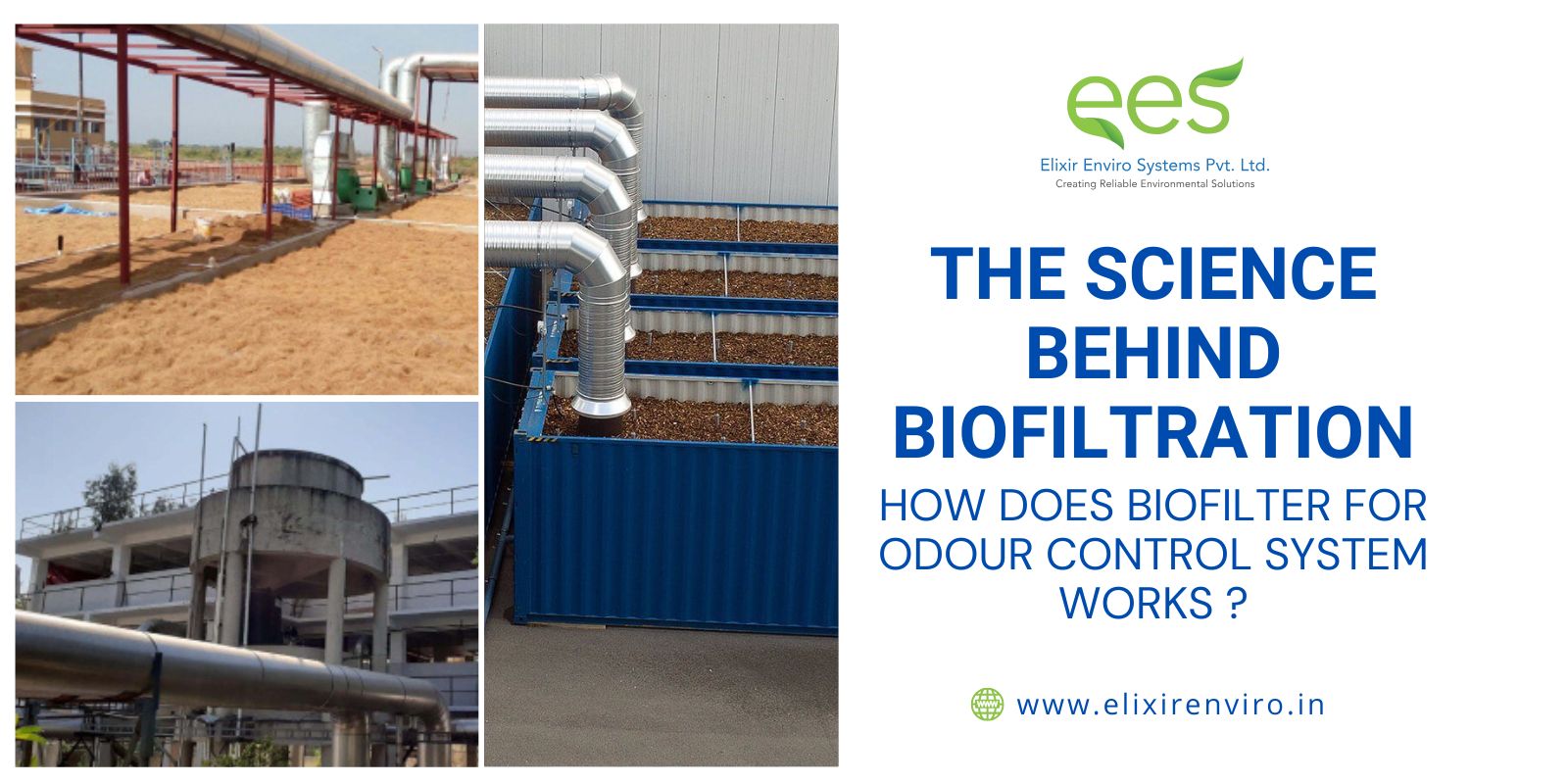
In an era where industries are under increasing pressure to adopt environmentally friendly practices, biofiltration has emerged as a standout solution for odour and air pollution control. This natural, efficient, and cost-effective technology harnesses the power of microorganisms to neutralize harmful compounds in the air, making it a sustainable choice for industries ranging from wastewater treatment to food processing.
In this blog, we’ll dive into the science behind biofiltration, explain how it works, and explore its role in controlling odours and pollutants. We’ll also look at how Elixir Enviro Systems integrates biofiltration into its suite of environmental solutions.
Biofiltration is an air treatment process that uses a biological system to remove contaminants from an air stream. At its core, it involves passing polluted air through a bed of organic material, such as compost, wood chips, or peat moss, where microorganisms reside. These microorganisms break down odorous compounds and air pollutants into harmless byproducts like water, carbon dioxide, and biomass.
This eco-friendly technology is particularly effective at treating volatile organic compounds (VOCs), hydrogen sulfide (H₂S), ammonia, and other malodorous or hazardous compounds found in industrial emissions.
The biofiltration process involves three key stages:
1. Preconditioning the Air
Before entering the biofilter, the air stream is often preconditioned to ensure optimal conditions for microbial activity. This may involve:
2. Air Passage Through the Biofilter Bed
The preconditioned air is then directed through the biofilter bed. This bed is composed of porous organic material, which provides a large surface area for microbial colonization. As the air flows through:
3. Biological Degradation
Once absorbed, microorganisms metabolize the pollutants as a source of energy and nutrients. This biodegradation process converts harmful compounds into:
Biofiltration is effective at neutralizing a variety of odorous and harmful compounds, including:
Biofiltration offers several advantages over traditional odour and pollution control methods:
1. Environmentally Friendly
Biofiltration relies on natural processes and does not produce harmful byproducts. It eliminates the need for chemicals or high-energy processes, making it a sustainable option.
2. Cost-Effective
Compared to technologies like thermal oxidizers or chemical scrubbers, biofilters have lower operating costs. They require minimal energy input and utilize readily available organic materials.
3. High Efficiency
Biofilters can achieve removal efficiencies of over 90% for many odorous and harmful compounds. Their effectiveness improves with proper design, operation, and maintenance.
4. Low Maintenance
With routine care, such as moisture control and periodic replacement of the filter bed, biofilters can operate efficiently for years.
5. Wide Applicability
Biofiltration is suitable for a wide range of industries, including wastewater treatment plants, food processing facilities, composting sites, and chemical manufacturing plants.
While biofiltration is highly effective, it does come with challenges that need to be managed:
Though there are many many challenges, Elixir Enviro Systems have solutions for odour control
At Elixir Enviro Systems (EES), we specialize in turning environmental challenges into opportunities for sustainable growth. Here’s how we can help your business:
Biofiltration represents a perfect blend of nature and technology, providing an eco-friendly and effective solution for odour and pollution control. Its ability to harness the power of microorganisms to treat a wide range of pollutants makes it an invaluable tool for industries seeking sustainable practices.
At Elixir Enviro Systems, we are dedicated to helping industries adopt biofiltration and other innovative technologies to minimize their environmental impact. If you’re looking for a reliable, sustainable, and cost-effective odour control solution, contact us today to learn more about how biofiltration can transform your operations.




